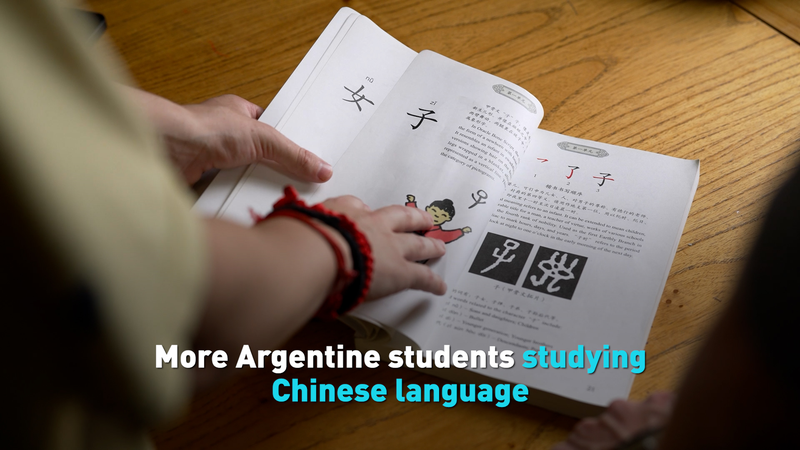As China and France celebrate the 60th anniversary of their diplomatic relations, Chinese President Xi Jinping's state visit to France highlights the growing ties between the two nations. Amidst these celebrations, a significant cultural exchange is taking place in French classrooms: the rising popularity of Mandarin Chinese among young students.
Nicolas Idier, Inspector-General of Chinese Language Education at the French Ministry of National Education, shared his insights in an interview in Paris. He emphasized that learning Mandarin is more than a trend in France; it reflects a deep-rooted cultural connection. "It's not a fad," Idier stated. "It's truly rooted in French culture."
According to Idier, approximately 40,000 French schoolchildren are currently studying Mandarin as a foreign language. This number has been steadily increasing, showcasing the keen interest among French youth in engaging with China's rich linguistic and cultural heritage. "Learning the incredibly rich Chinese language opens doors to understanding a civilization that has contributed immensely to world history," he added.
The enthusiasm for Mandarin is bolstered by centuries of cultural exchanges between France and China. French scholars, artists, and philosophers have long been fascinated by Chinese art, literature, and philosophy. This historical fascination is now being revitalized in modern education, as students recognize the importance of China in global affairs.
The initiative to promote Mandarin in French schools aligns with broader educational goals. By equipping students with language skills and cultural awareness, France prepares its future generations to engage in international cooperation and dialogue. "Our aim is to foster mutual understanding and to build bridges between our countries," Idier explained.
As globalization continues to interconnect societies, the ability to communicate across cultures becomes increasingly valuable. The growing interest in Mandarin among French students exemplifies a commitment to embracing diversity and enhancing international relations. Idier remains optimistic about the future of Mandarin education in France, viewing it as a pivotal component of the country's educational landscape.
Reference(s):
cgtn.com








